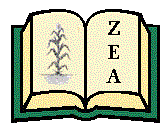
Zea E-Books in American Studies
Files
Description
Published in the American Antiquarian Society's Archaeologia Americana, vol. 2, (1836), pp. 1-422.
A 208-page geographical, historical, and cultural introduction is followed by 214 pages of appendices of linguistic materials.
Sect. I. Indian Tribes north of the United States
Eskimaux.
Kinai, Koluschen, &c., on the Pacific Ocean
Athapascas, (Northern, Cheppeyans, Copper Mine, &c., Sussees, Tacullies)
Sect. II. Algonkin-Lenape and Iroquois,
Algonkin-Lenape
Northern (Knistinaux, Algonkins, Chippeways, Ottowas, Potowotamies, Mississagues)
Northeastern (Labrador, Micmacs, Etchemins, Abenakis)
Eastern (New England, Mohicans, Manhattans, Long Island, Delawares and Minsi, Nanticokes, Susquehannocks, Conoys, Powhatans, Mannahoks, Pamlicoes)
Western, (Menomonies, Sauks, Foxes, Kickapoos and Mascoutins, Miamis and Piankishaws, Illinois, Shawnoes)
Iroquois
Northern (Wyandots or Hurons, Extinct Tribes, Five Nations)
Southern (Tuteloes, Nottoways, Tuscaroras)
Sect. III. Southern Indians, (east of the Mississippi and in Louisiana)
Extinct Tribes of Carolina
Catawbas; Cherokees (Guess's alphabet)
Muskhogees (proper, Seminoles, Hitchittees,)
Uchees; Natchez
Alibamons and Coosadas
Choctaws and Chicasas
Southern Indians at the time of De Soto's expedition, Their social state (division into clans, worship of the sun, monarchical government; Natchez)
Tribes of Lower Louisiana, east and west of the Mississippi (great diversity of languages)
Sect. IV. Indians west of the Mississippi,
East of the Rocky Mountains
Sioux (Winebagoes, Dahcotas and Assiniboins, Shyennes, Minetares, Mandares, Crows, Quappas, Osages, Kansaws, Ioways, Missouris, Ottoes, Omahaws, Puncas,)
Pawnees and Ricaras; habits of western Indians
Black Feet, Rapid Indians, other erratic tribes
West of the Rocky Mountains: Want of vocabularies; Salish, Atnahs, Shoshonees, Chinooks
Sect. V. General Observations.
Climate; forests and prairies; geographical notices
Conjectures (Asiatic origin; semi-civilization of Mexico; ancient works in United States,)
Means of subsistence (hunter state; agricultural labor confined to women,)
Labor the only means of preserving and civilizing the Indians, (Cherokee civilization,)
Sect. VI. Indian Languages.
Diversity of vocabularies and similarity of grammatical forms; gender and number
Substantive verb; conversion of nouns, &c. into verbs, reciprocal; pronouns
Transitions
Tenses and moods, compound words, multiplied forms, defective information
Suggestions respecting highly inflected languages
Grammatical forms in the earliest stages of society,
APPENDIX.
No. 1. Grammatical Notices.
Eskimaux; Athapascas
Algonkin-Lenape, (Massachusetts, Delaware, Chippeway, Micmac,)
Iroquois (Onondago, Huron or Wyandot,)
Cherokee
Sioux; Choctaw
Muskhogee; Araucanian
No.2. Specimens of Conjugations and Transitions
Notes to the Tables of Transitions, &c.
Cherokee Alphabet
No. 3. Note by the Publishing Committee, respecting Tribes on Northwest Coast of America
VOCABULARIES
General Table
No.1. Comparative Vocabulary for Fifty-three Tribes
No. 2. Do. Sixteen Tribes
No. 3. Umfreville's Vocabulary
No.4. Miscellaneous Vocabularies
No. 5. Supplementary Vocabulary, (Muskhogee, Choctaw, Caddo, Mohawk, Seneca, Cherokee,)
Short Comparative Vocabulary of the Choctaw and Muskhogee
SELECT SENTENCES.
Muskhogee, Choctaw, Caddo
Ojibway, Cherokee, Seneca,
Supplementary Cherokee Transitions
The Lord's Prayer in Cherokee, Muskhogee, Choctaw, and Dahcota
Albert Gallatin (1761–1849) immigrated to the United States from Switzerland in the 1780s. He was U.S. Senator 1793, U.S. Representative 1795-1801, Secretary of the Treasury 1802-1814, Ambassador to France 1816-1823, Ambassador to Great Britain 1826-1827, co-founder New York University 1831, President of the Bank of the United States 1831-1839, co-founder American Ethnological Society 1842.
Publication Date
1836
Disciplines
American Studies | Canadian History | History | Indigenous Studies | Other American Studies | Race, Ethnicity and Post-Colonial Studies | United States History
Recommended Citation
Gallatin, Albert, "A Synopsis of the Indian Tribes Within the United States East of the Rocky Mountains, and in the British and Russian Possessions in North America" (1836). Zea E-Books in American Studies. 16.
https://digitalcommons.unl.edu/zeaamericanstudies/16

Included in
Canadian History Commons, Indigenous Studies Commons, Other American Studies Commons, United States History Commons

